In an era where digital devices are integral to daily life, the concept of a digital detox has emerged as a beacon of hope for many seeking mental tranquility. This article explores the profound effects that stepping away from screens can have on mental well-being. With a surge in digital consumption leading to various mental health concerns, understanding the impact of digital detox has become more relevant than ever. This exploration offers insights into how disconnecting from the digital world, even temporarily, can lead to significant improvements in focus, stress levels, and overall happiness.
Contents
The Digital Age and Mental Health
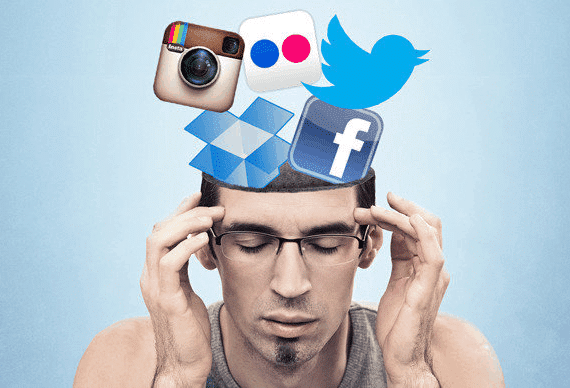
The digital age, characterized by constant connectivity and an endless stream of information, has reshaped the landscape of human interaction and mental health. The average person, bombarded with notifications and online content, often finds themselves caught in a web of digital engagement. Studies have shown a notable correlation between excessive digital usage and mental health issues. For instance, prolonged exposure to screens and social media has been linked to increased rates of anxiety and depression, especially among younger populations. This connection highlights a concerning trend where the tools designed to enhance communication and knowledge are paradoxically contributing to mental health declines.
In addition to the direct effects on individual well-being, the digital age has also altered societal norms and expectations. The pressure to be constantly available and responsive online can lead to a sense of perpetual urgency and stress. This environment, where one is always ‘on’, disrupts natural rest cycles and can exacerbate feelings of anxiety and inadequacy. The impact is particularly pronounced in the realm of social media, where curated portrayals of life can lead to unhealthy comparisons and a distorted sense of reality. These platforms, while offering avenues for connection, often foster environments that can detrimentally affect self-esteem and overall mental health.
Understanding Digital Detox
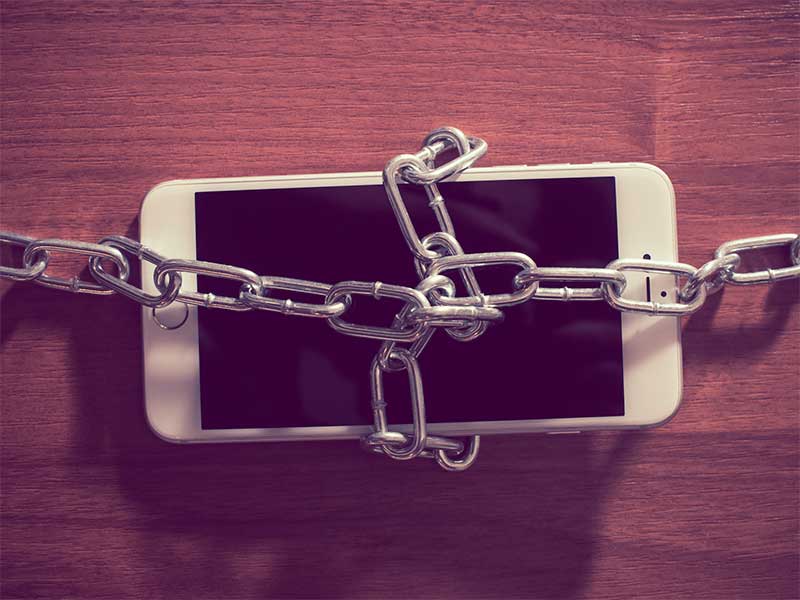
Digital detox, a term that has gained considerable attention, refers to a period of time when an individual voluntarily refrains from using digital devices such as smartphones, computers, and social media platforms. This practice can take various forms, ranging from complete abstinence to more moderate approaches like limiting specific app usage. The concept has gained momentum as more people recognize the need to escape the digital clutter and its associated stressors. Digital detoxes are not one-size-fits-all; they can be tailored to fit individual lifestyles and needs, making them a versatile tool in the quest for improved mental well-being.
The reasons for undertaking a digital detox are as varied as the methods. For some, it’s a way to reclaim time and focus; for others, it’s about reducing stress or improving sleep quality. The growing awareness of the negative impacts of digital overuse has led to a broader acceptance of digital detoxes. People are increasingly seeking ways to balance their online and offline lives, recognizing that such equilibrium is crucial for mental health. This shift marks a critical step in addressing the challenges posed by the digital age, offering a pathway to healthier, more mindful living.
Psychological Effects of Digital Overuse

Excessive digital use profoundly affects the brain, influencing cognitive functions like attention span and memory. The constant stream of information and the need to multitask in the digital realm can lead to diminished concentration and a fragmented thought process. This cognitive overload not only hampers productivity but also contributes to a general sense of mental fatigue. Moreover, the blue light emitted by screens can disrupt sleep patterns, further impacting cognitive abilities and mood.
The emotional well-being of individuals is also significantly impacted by digital overuse. Social media, in particular, can be a double-edged sword. While it offers a platform for connection and expression, it also creates an environment ripe for self-esteem issues and negative self-comparison. Users often compare their lives to the idealized versions presented by others, leading to feelings of inadequacy and lowered self-worth. Additionally, the anonymity and distance provided by digital platforms can sometimes lead to negative interactions and cyberbullying, further affecting mental health.
Benefits of Digital Detox on Mental Well-Being
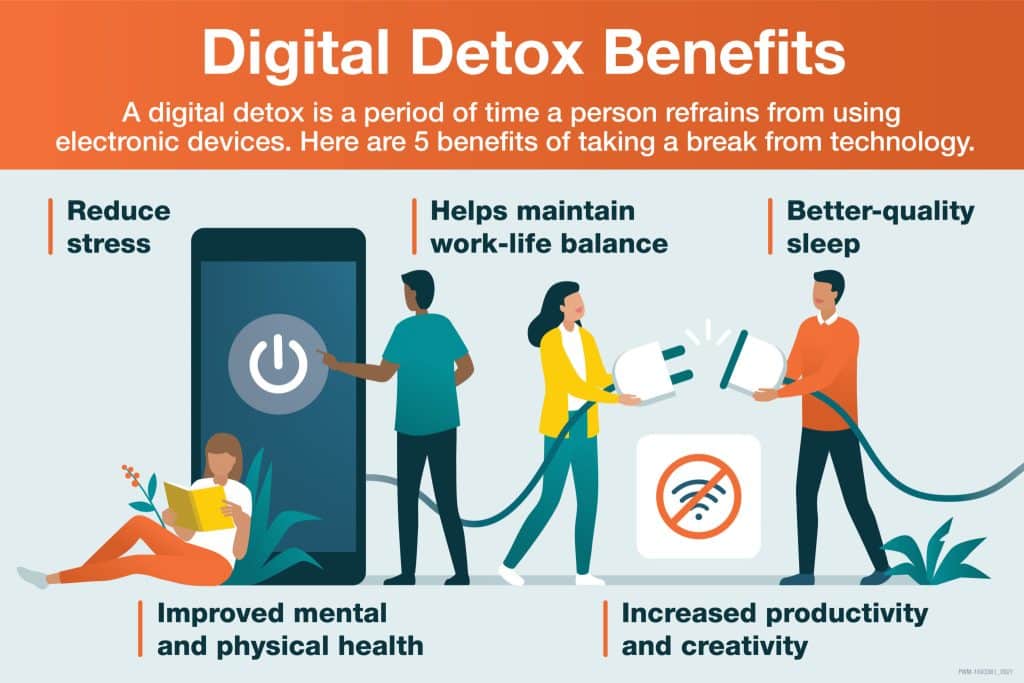
Embarking on a digital detox can lead to a noticeable improvement in focus and concentration. Without the constant interruptions of notifications and the lure of endless scrolling, individuals often find that they can engage more deeply with tasks and activities. This heightened focus can lead to increased productivity and a sense of accomplishment, boosting overall mental well-being. Additionally, stepping away from screens allows for more time to engage in activities that promote cognitive health, such as reading, puzzles, or engaging in meaningful conversations.
Another significant benefit of a digital detox is the enhancement of real-life relationships and social interactions. In the absence of digital distractions, individuals are more present and attentive in their interactions with others, leading to stronger, more meaningful connections. This improved quality of social engagement can be a powerful antidote to the feelings of isolation and loneliness that are often exacerbated by superficial online interactions. Furthermore, a digital detox can lead to reduced stress and anxiety levels. By disconnecting from the constant flow of information and social media pressures, individuals can find a sense of calm and relaxation, allowing them to recharge and improve their overall mental health.
Challenges In Implementing a Digital Detox
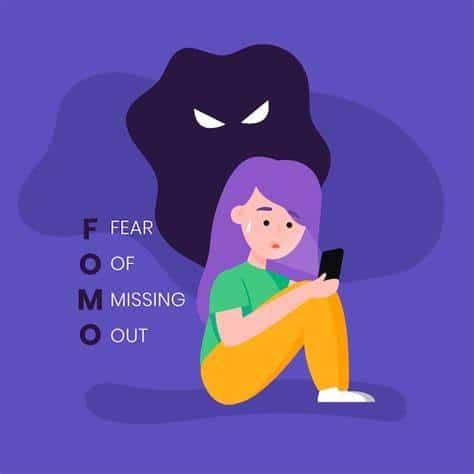
Implementing a digital detox can be challenging due to the fear of missing out (FOMO) and the ingrained habit of digital device usage. These obstacles are particularly pronounced in environments where digital platforms are integral for social and professional interactions. To overcome these challenges, setting achievable goals and communicating detox plans with others are effective strategies. Finding enjoyable alternative activities can also aid in making the process more sustainable and less daunting.
For many, professional obligations, such as the need to be constantly available for emails or online meetings, make a complete digital detox seem impractical. In these cases, small steps like designated screen-free times or app-specific detoxes can be beneficial. Gradually reducing digital usage and replacing it with fulfilling offline activities can lead to a more balanced and mentally healthy lifestyle.
Digital Detox For Different Age Groups
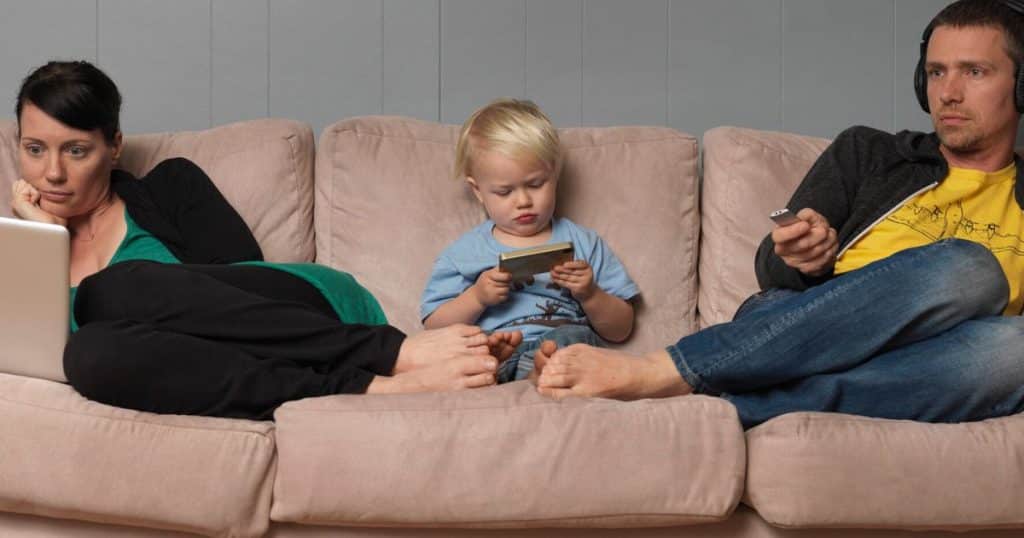
Tailoring a digital detox to different age groups is crucial for its effectiveness. For children, reducing screen time can lead to better social skills and fewer attention-related issues. Encouraging activities like outdoor play and reading can serve as healthy alternatives. Teenagers, heavily engaged in digital socializing, can benefit from detox by strengthening real-life relationships and reducing exposure to cyberbullying.
Adults, often reliant on digital devices for work and leisure, face unique challenges in detoxing. For them, a digital detox can lead to reduced work-related stress and improved sleep quality. Seniors, while generally less engaged with digital technology, can also benefit from detox by dedicating more time to offline hobbies and social interactions. For each group, the key is finding a balance that suits their lifestyle and needs.
Maintaining a Balanced Digital Life Post-Detox

After a digital detox, integrating the lessons learned into daily life is crucial for maintaining a balanced digital lifestyle. Strategies like setting specific times for digital use and prioritizing offline activities can help sustain the benefits of the detox. It’s essential to remain mindful of digital consumption and recognize signs of digital overload, adjusting habits as needed to preserve mental well-being.
Long-term, the goal is to establish a healthy relationship with digital devices. This might involve regular digital detox periods or continuously practicing moderated digital use. Embracing activities that promote mental and physical health, such as exercise, reading, or spending time in nature, can further enhance the quality of life post-detox.
Embrace a Brighter, Screen-Free Future
Reflecting on the journey through the digital detox process reveals its significant impact on mental well-being. From understanding the challenges of the digital age to implementing and maintaining a balanced digital lifestyle, each step contributes to a healthier, more mindful way of living. This exploration underscores the importance of periodically stepping back from digital devices to reconnect with oneself and the world around, fostering a sense of peace and contentment in the digital era.